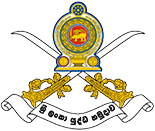Prof Bantarto Bandoro, Institute for Defence and Strategic Research (IDSR), Jakarta, Indonesia in his analysis of Sri Lanka’s post recovery admitted that Sri Lanka within a short span, has made great strides in the field of economy and infrastructure.
Commencing his presentation on the theme ‘Sri Lanka, a Nation between the Gulf and ASEAN: a Perspective,’ the Professor extracted what his students told him when asked about Sri Lanka. They all agreed that Sri Lanka should join ASEAN and work with each other closely after improving economic ties.
Here are excerpts from his speech to the Defence Seminar:
“Sri Lanka is a South Asian country. But, that doesn’t mean Sri Lanka does not look beyond the region. Its link with other parts of the world reflects the importance of Sri Lanka’s partnership to further seek for a much stable strategic environment. Sri Lanka trades with all countries around the world. It has already had an FTA with countries in its immediate region, India and Pakistan, and developed trade links with the Middle East countries in general and those in the Gulf region.
The economic link of Sri Lanka with other parts of the world emphasizes the importance of trade and economic development for Sri Lanka.
From the strategic and political perspective, Sri Lanka maintaining of a maritime security became an important factor to Sri Lanka as it is an island nation and lies near to a regional super power and also lies near the main sea route connecting West to East of world.
Due to its geographical setting, Sri Lanka cannot avoid the imperative to develop strategic ties with key Asian countries, China, Japan as well as those in Southeast Asia region.
That being said, Sri Lanka lies at the intersection of West Asia and Southeast Asia. Sri Lanka’s link with West Asia is more of economic in nature , while its link with Southeast Asia is perceived to be related to security .
This short paper attempts to highlight the rationale for strategic link between Sri Lanka in South Asia and ASEAN in South East Asia. The objective is to see how Sri Lanka manages its relations with ASEAN through strategic link and to assess strategic benefit both sides may gain from such a link. Sri Lanka’s relations with its immediate region, South Asia is as important as its relations with South East Asia, and it therefore needs to maintain the balance in its foreign policy.
Sri Lanka and Southeast Asia – ASEAN
There was a report that when ASEAN was formed more than four decades ago, Sri Lanka received an invitation to join ASEAN, but Sri Lanka did not accept the invitation. Sri Lanka realized its position in South Asia will not provide any strategic benefits to ASEAN, let alone Sri Lanka is not a major part of the key security architecture in the region of South Asia. Sri Lanka’s present and future policy focus is confined to SAARC, but the India-Pakistan rivalry has made SAARC less active in producing policies which can provide common benefits to its members.
Sri Lanka’s membership in ASEAN is not a major policy issue in Colombo, but there was an observation that becoming a member of ASEAN would give Sri Lanka an insurance policy against unwelcomed Indian interference. The biggest gain Sri Lanka stands to benefit from an ASEAN membership is easier access to trading and investment opportunities in the region. Since Sri Lanka is not part of Southeast Asia nor has Sri Lanka possessed strategic stakes in the region, it is just irrational to talk about Sri Lanka’s membership in ASEAN.
In spite of the fact that Sri Lanka is not politically and strategically part of Southeast Asia, Sri Lanka’s interest in the ASEAN affairs has led it to the sending of delegation to the 14th ASEAN Regional Forum (ARF) in Manila from 1st - 2nd August 2007.
Sri Lanka's admission to the foremost political and security forum in Asia as its 27th member is a clear reflection of Sri Lanka's pro-active role in regional and multilateral for the promotion of peace, dialogue and cooperation for the greater benefit of the Asia Pacific region in particular and the world at large.
Sri Lanka also acceded to the Treaty of Amity and Cooperation (TAC) in Southeast Asia, a sign of Sri Lanka’s intent to adhere to principle of cooperative regional relations.
Sri Lanka’s decision to be a full-fledged member of ARF demonstrate its commitment to engage constructively in forum activities for the promotion of enhanced peace and security in line with the common agreed objectives with emphasis on security and preventive diplomacy.
Sri Lanka’s membership of ARF provide opportunity to share its experience in combating terrorist threats emanating from terrorist networks operation abroad such as maritime piracy, illegal trafficking of weapons, drugs, people, money laundering etc.
Sri Lanka’s membership of ARF and its link to the Southeast Asia was unthinkable in the past. Now, with the complexity of regional security issues and their repercussions on the stability and security of other region, Sri Lanka cannot avoid the imperative to engage itself with ASEAN to jointly address common regional security issue and challenges.
With its membership in ARF and accession to the TAC, Sri Lanka stands to benefit the following.
First, to gain updated information on fresh regional security issues.
Second, to gain new perspective and best practices on how the ASEAN manage its regional problems.
Third, to strengthen economic ties with Sri Lanka’s ASEAN major investors.
Fourth, to gain a better understanding as to how different political standpoint on certain regional issues between member countries of ASEAN, is settled by way of consensus.
Fifth, to learn ASEAN’s best practices in the area of preventive diplomacy and confidence building measures.
Sixth, formal regional security architecture is a major topic in East Asia where ASEAN has stakes in it. There isn’t much of a security architecture currently in place in South Asia, nor is there widespread discussion on the possibility of promoting one, let alone discussion on Sri Lanka’s role in the architecture. It may therefore be useful for Sri Lanka to learn how ASEAN has placed itself in a regional architecture.
By having Sri Lanka as ASEAN’s extra regional “collegue”, ASEAN in turn stands to benefit the following.
First, to gain a better understanding of the fresh South Asia regional security which may have a long term repercussions on the security and stability of South East Asia.
Second, Sri Lanka is strategically located in the center of the Indian Ocean and knows well about the importance of maritime security. So does ASEAN. It is against such backdrop that ASEAN can work han in hand with Sri Lanka in addressing fresh maritime security issues.
Third, Sri Lanka - ASEAN partnership will deepen and widen ASEAN network with countries in South Asia who share common security concern.
Fourth, ASEAN will have access to South Asia to gain better perspective as to how the SAARC manage to address common security issues, despite of the perceived competition in the organization between India and Pakistan.
Challenges Ahead for Sri Lanka and ASEAN
Sri Lanka access to Southeast Asia is facilitated by its membership in the ARF and TAC. Through such a membership, Sri Lanka is in position to also air its concern over the impacts of myriad of regional security issues for regional stability. That being said, Sri Lanka is challenged to put forward its ideas as to how the common regional challenges have to be addressed.
Being part of ARF and its acknowledgement of the importance of sustaining cordial relationship with ASEAN, Sri Lanka is there to provide, if not shape, regional agenda for regional security. Unlike Indian and Pakistan whose relationship is perceived to be characterized more by enmity, Sri Lanka is freed from such a nuance.
Sri Lanka is therefore in a best position to engage fully in a multilateral dialogue on regional security, without fearing to be held hostage by diplomatic problems it has, if any, with its neighbors.
From the perspective of organization theory, a collective decision and solid organization, like ARF, are indeed important for an organization if it is to be seen as having the responsibility, capacity and resources to effectively approach problems. Perhaps Sri Lanka can uniquely contribute to such objective. The question is how would Sri Lanka play apart in such a process?
Being a country whose origin is South Asia and whose interest is now strategically linked with Southeast Asia, it is time for Sri Lanka to be able demonstrate its capacity to play a constructive role outside its immediate region. The role can be in the form of promoting Sri Lanka’s best practices in handling the issue of piracy, the issue of which is also faced by some member countries of ASEAN.
Sri Lanka provides anti piracy protection and is one of the few countries in the region to authorize the transit of armed guards through their waters for on board protection of merchant ships and fishing vessels.
Sri Lanka has a strong attachment to the Indian Ocean, while ASEAN fits well in the Pacific Ocean. Sri Lanka and ASEAN both recognized the important of those two areas for international security. It is therefore natural that Sri Lanka and ASEAN take a leading role in maintaining security in those two oceans.
Indian Ocean is possessed with vast natural resources, mineral, fish, marine products, oil resource and natural gas. It also provide home to many choke points, such as the Straits of Hormuz, Straits of Malacca, Lombok and the Sunda Straits. The Pacific Ocean supports some of the world’s most important trade routes.
Most of the exports moving from west to east and from north to south are high-value-added manufactured goods. Conversely, most of the exports moving from east to west and from south to north are raw materials and light manufactures.
Any disruption in traffic flow through these points can have disastrous consequences. The disruption of energy flows in particular is a considerable security concern for littoral states, as majority of their energy lifelines is sea based. Since energy is critical in influencing the geopolitical strategies of a nation, any turbulence in its supply has serious security consequences.
Globalization has indiscriminate effects and Sri Lanka and ASEAN cannot avoid to experience such an impacts of the globalization. The threats and vulnerabilities may be the product of the globalization.
The above arguments justify the imperative for Sri Lanka and ASEAN to work together in addressing whatever threats and vulnerabilities that may occur in or between those two oceans.
Sri Lanka’s geographical location has, traditionally, represented a significant point in the Indian Ocean region. Maintaining of a maritime domain became an important factor to Sri Lanka as it is an island nation and lies near to a regional super power and also lies near the main sea route connecting West to East of world.
This is to suggest that Sri Lanka’s maritime area is not only the venue from and through which regional power interact and compete, but also a theatre where non-state actor may exploit the vulnerabilities of the area.
The same case also applies to ASEAN in the Pacific Ocean. The Pacific Ocean joins the Indian Ocean via the Strait of Malacca, the later of which is also exposed to the danger of pirates and maritime terrorist.
The above assessment justifies the need for Sri Lanka and ASEAN to develop a strategic and collaborative link to comprehensively address the permanent danger of nontraditional threats.
Not only is ASEAN in the Pacific and Sri Lanka in South Pacific are part of the complex geopolitical milieu in their respective region, but the changed in the strategic milieu surrounding the two regions also challenged Sri Lanka and ASEAN to produce fresh policy initiatives to show that Sri Lanka and ASEAN have a strong sense of purpose and determination to address new regional security issues together with other Asia Pacific and South Asia countries. Sri Lanka is convinced that ASEAN is a region with which it needs to develop and nurture and expand its relations.”
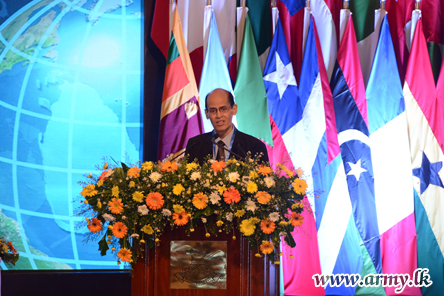 |
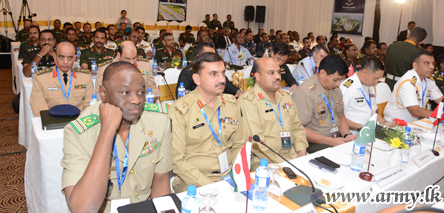 |
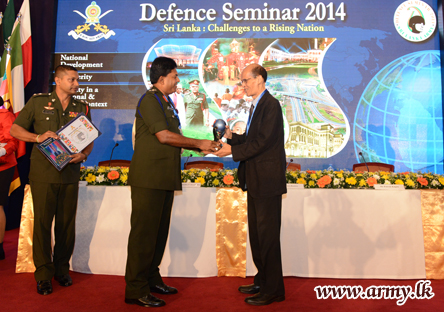 |
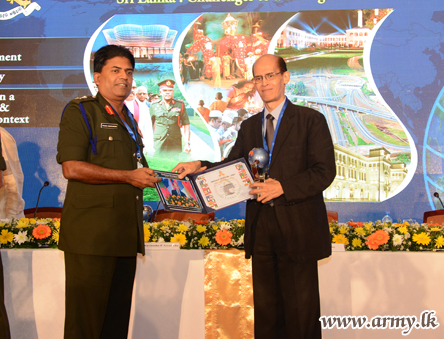 |
